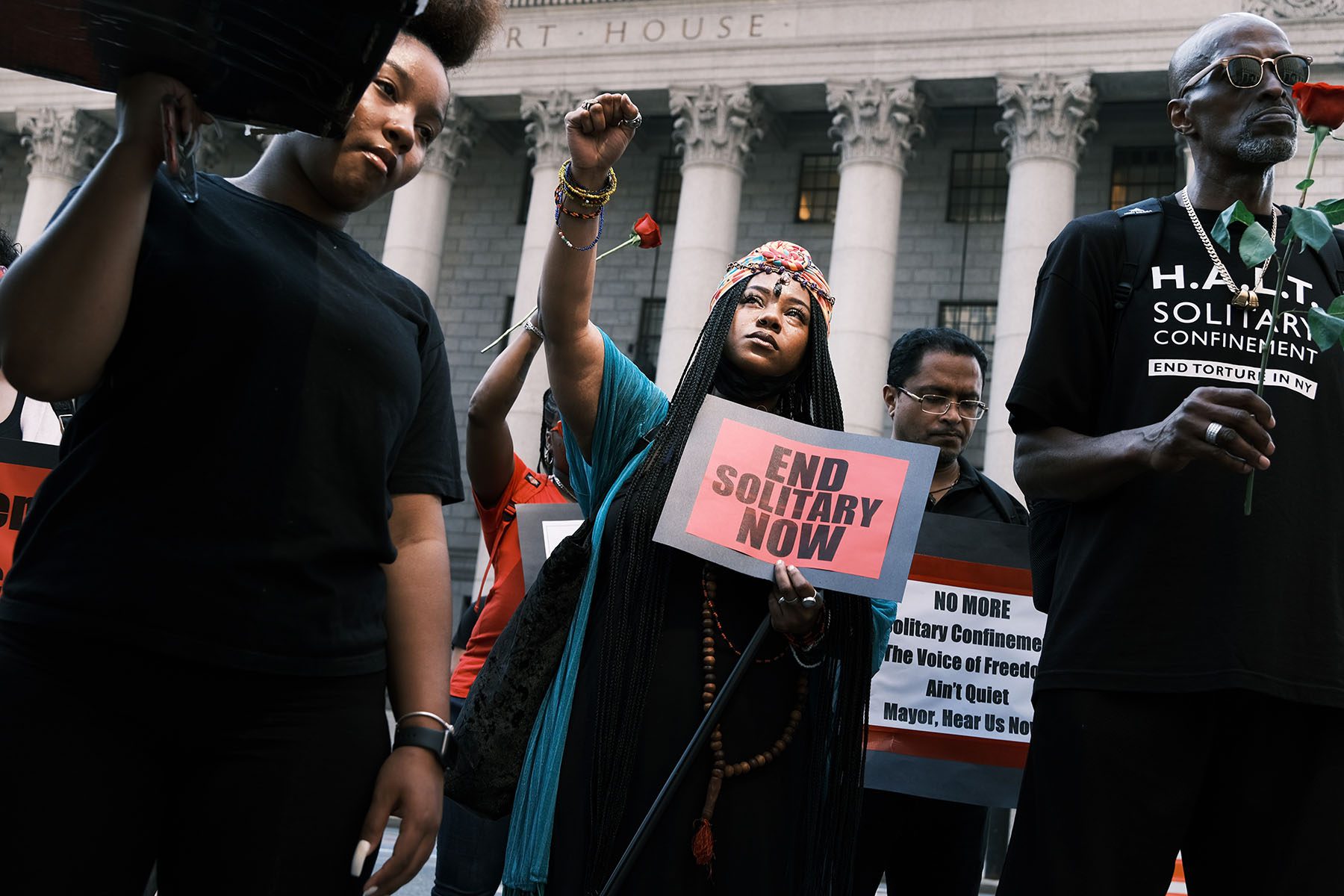Layleen Xtravaganza Cubilette-Polanco’s death was supposed to be the turning point.
Polanco, a 27-year-old transgender woman, died of an epileptic seizure in solitary confinement at Rikers Island jail in New York City in June 2019. Polanco’s sister, Melania Brown, cried through press conferences, comforted family members who had also lost loved ones and waded through a two-year lawsuit. LGBTQ+ advocates marched in Polanco’s name, petitioned lawmakers and raised bail funds for other trans women behind bars.
A year after Polanco’s death, former Mayor Bill de Blasio declared he would end solitary confinement, categorized as torture by the United Nations.
But in late December, incoming New York Mayor Eric Adams announced that he wants to reverse de Blasio’s plans.
“Those who are romanticizing this issue, I’m asking them, go do a week on Rikers Island,” the new mayor, a former police captain, told NBC New York. “Spend time there.”
Brown called Adams’s announcement a “slap in the face.”
“My sister was tortured,” Brown said. “Solitary confinement is one of those practices that they use to mentally, physically and emotionally break other humans down, and it needs to come to an end.”
Polanco is among a number of people to die after being put in solitary at Rikers in recent years. In 2015, Kalief Browder, a young man who spent two years in solitary after allegedly stealing a backpack, died by suicide. Last year, officials reported that 15 people who were incarcerated at or just released from Rikers had died. At least five were suspected suicides.
Adams did not respond to a request to comment. However, Adams, a former New York City police captain, has stated publicly that segregation is needed to keep jails safe from violent offenders. He says his administration will move away from old models of solitary confinement, allowing those in segregation more physical space to move and resources like mental health care.
Opponents, however, argue there is no humane way to isolate incarcerated people. David Shanies, an attorney for Polanco’s family, said solitary has been sold as the only tool for dealing with “dangerous, murderous people” in jails.
“But the reality that we see in civil rights litigation is that solitary is most often used as a means of punishing inmates for what are either very minor infractions, or in many cases, no infraction at all,” Shanies said.
Solitary confinement has often been used to house vulnerable people, like transgender women, who would otherwise be at-risk in the general population. Shanies argues that Polanco’s case illustrates the ways that vulnerable people become trapped in the system.
Polanco was arrested and jailed on $500 bail over a two-year-old prostitution crime. A report by the city’s Board of Correction revealed that staff put her in solitary after she suffered a mental health crisis, charged at a guard and was hospitalized. A psychiatrist objected to her isolation, citing her epilepsy, the report said.
Following the report, the city agreed to pay Polanco’s family $5.9 million for her wrongful death. But the money does little to bring justice for Polanco or prevent future deaths, Polanco’s sister said.
“New Years are hard because it’s another year that I’m bringing in without my sister,” Brown said. “My sister is never going to rest in peace until we end what took her life.”
As it stands, Adams can derail New York’s plans to do away solitary confinement. The Board of Correction had committed to ending the practice at the behest of de Blasio and put out a first draft of its policy for doing so in 2019. However, actual implementation took so long that at the end of 2021, city council filed a bill to circumvent the mayor and the board. Board of Correction Executive Director Meg Egan did not respond to a request to comment.
In December, 29 city council members wrote to Adams and asked him to reconsider. Those lawmakers could choose to pursue a bill, which currently has 34 sponsors, to end solitary confinement.
Adams, however, said he will ignore his council, and that he is the new mayor whether they “like it or not.”
With two-thirds support in the 51-person chamber, the council could override the mayor’s veto.





